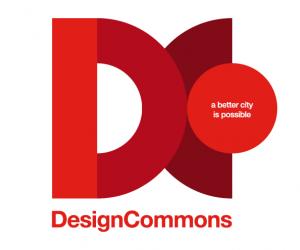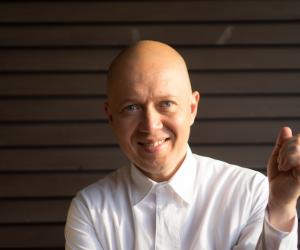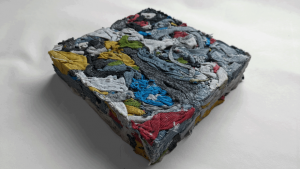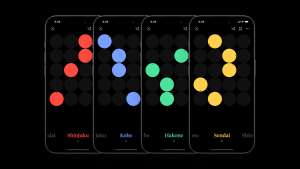Part of the Project
It’s time to give local musicians the compensation they deserve, says Marko Ahtisaari.
While speaking at the inaugural Design Commons, the Finnish entrepreneur behind the Sync Project said music communities play an important role in our cities. According to him, there is much to be done in compensating the creators of the thousands of tracks we to listen to on streaming platforms like Spotify, SoundCloud and YouTube.
“It turns out that a lot of the time when music is being streamed, the provider of the streaming service can’t pay the artist because they don’t know who to pay. It’s a very simple problem, but it hasn’t been fixed yet.”
Instead of appealing to individual industry experts in the music and streaming business, he believes it best to draw a line across several creative fields at once.
“At the MIT Media Lab, we often talk about an anti-disciplinary approach. We’re not interested in what people in individual disciplines would do, but rather how can you bring design, science, art, technology and even sociology together to ask the right questions about these complex issues,” explains Ahtisaari.
Ahtisaari collaborated with Massachusettes Institute of Technology (MIT) and Berklee College of Music to start the Open Music Initiative. It brings together the necessary information for streaming platforms to address this systemic problem of reimbursement. Open Music Initiative matches up the right data so that the creators of streamed music can be identified properly.
“We’ve launched a simple API – it’s a way of describing the composition and who wrote it and connecting these two pieces of data. The motivation is that music is such a universal thing. Creators need to be able to make an income. We can at least get the information together so that the people whose music is already being streamed can be compensated.”
Imagining the possibilities of Open Music Initiative moving forward, Ahtisaari believes it will make collaboration between musicians, sound designers and DJs much easier. By connecting the separate dots and making relationships between musical creatives a lot more accessible (not to mention pinpointing the right people who are due to be paid for their music), music communities the world over will only become stronger.









